The Home buying Process: Consult and Pre-Approval
So You Want To Buy A House...
So you think you’re ready to buy a house? That’s awesome. Before you get lost on Zillow searching for the perfect modern farmhouse, let’s take a few steps back.
Define your budget and get to know your finances. Buying a house is a large purchase, and you should do lots of research and preparation to ensure you’re actually ready to make it. Get familiar with your finances and that means being honest about all of your debt. You’ll want to have a solid idea of what your credit score is, how much credit card debt you’re holding, and any other debts you may have (student loans, car payments, etc.). Did you know things like your cell phone and cable bills don’t count towards your debt when talking about obtaining a mortgage?
Debt is a crucial part of deciding whether you can afford to buy and eventually pay for a home. Holding debt isn’t necessarily a bad thing. Something like student loans you’re actively paying off on-time is one thing, but carrying huge balances on a credit card or missing payments altogether will present as a red flag to banks and lenders.
Getting a handle on your finances can give you a serious reality check about how much you’re making versus how much you’re spending, how much debt you’re in, and if throwing another large expense into the mix is a smart financial decision. If you’re looking for tips on how to start managing your budget better, check out our last
blog
all about financial planning and budgeting.
Once you feel confident in your financial picture, the next step is to decide on things like a possible budget, research where you may want to live (neighborhood, schools, commute, etc.), and create your must-have list for your future home. Having all of these things in order before you start the home search will save you the headache later on in the home buying process.
What’s a Loan Officer?
When you think about buying a home, the first person you’ll think about is a Real Estate Agent. That’s great because you should find professional help to assist you in navigating this process. A Real Estate Agent will be able to help you find your dream home, advise you on things like what other homes nearby are selling for and advocate for you in the negotiating process.
But did you know that a Real Estate Agent is just one part of the equation? The other professional you’ll need to find for your team is a Loan Officer.
A Loan Officer is someone who works for the bank or lender you are going to be borrowing money from to pay for your home. You may think that this should be someone far removed from the experience of finding your dream home, but having an experienced and reliable Loan Officer on your home buying team is a game-changer and will make your Real Estate Agent feel far more comfortable showing your homes.
Things a Loan Officer does:
- Talks with your about your financial goals
- The expert that will educate you on what your mortgage is and how it will affect your financial situation
- Takes down all your financial information to determine what the best loan product is for your unique situation and how much you qualify to borrow
- Evaluates your finances to determine your eligibility for a pre-approval
- Advocates for you in the negotiating process and helps assist you in creating the perfect financial offer on your home (alongside your Real Estate Agent)
- Works to ensure that you’re getting the best possible experience so that you don’t have to stress more than you likely already are
- Works with their operations staff to get your loan approved and get you to closing table
- Stays in contact throughout the years to act as an advisor and aide in situations such as refinancing, second homes, and more as your home and financial situation changes.
A Loan Officer is the expert on the financial aspect of the home buying process. When you find your Real Estate Agent, ask them for recommendations on a trusted Loan Officer or do your research to find a Loan Officer who is right for you. If you find a Loan Officer first, they can help you find a trusted Real Estate Agent as well. Your Loan Officer is more than a voice on the phone demanding to have your credit score, they should be an ally in your home buying experience.
The Consult
Once you find both a Real Estate Agent and a Loan Officer let them help you. You shouldn’t go through this process alone and communicating everything to the professionals will help you remove any unnecessary stress.
The consultation is a no-pressure meeting where you get to know your Loan Officer and/or agent and they get to know you. Expect to answer questions about your work situation, your current financial situation, your financial goals, what your dream home is and more. These questions may seem invasive and personal, but the ability for your lender and agent to understand your wants and needs as well as your current situation is crucial to determining what the best path forward is for your home buying experience.
The Pre-Approval
You’ve probably heard this term thrown around before and have a vague understanding that it’s something you should have when you buy a home. But what is it? What’s the difference between a pre-approval and a pre-qualification? How do you get a pre-approval? Who should you get it from? Well let’s find out.
What is it? A pre-approval is an estimate from your chosen bank or lender on how much you will be approved to borrow for a home loan at a specific interest rate. This is received after a financial background check and can be used to show sellers you are a reliable and serious buyer. A pre-approval is not your final mortgage agreement, but the process of getting one is similar to your mortgage application.
What’s the difference between a pre-approval and a pre-qualification? A pre-qualification is the lite version of a pre-approval and holds far less weight with Real Estate Agents and potential sellers. This is a very rough estimate of what you could be approved for based on the information you provide yourself without official documentation and a soft credit check. A pre-qualification takes little time to complete whereas getting a pre-approval is similar to a final mortgage application and requires official documentation. The pre-qualification could help you to narrow down a rough budget while a pre-approval will give you a near-exact number on your home loan and help you win an offer on a home.
How do you get one?
A pre-approval is something you get from your Loan Officer or lender. Today, most people can get a pre-approval through a short online process. If you prefer to discuss things face-to-face, many experienced loan officers will be able to tell you whether you could be pre-approved for a loan after a quick consultation.
To receive your formal pre-approval letter, you’ll need to submit some documentation such as W-2 forms, your most recent pay stubs, bank statements, etc. Your lender will run through all your submitted documentation and pre-approve you for a specific amount, interest rate and loan program. This is NOT your final loan amount or mortgage agreement. This is an estimate and show of good faith in you as a borrower.
Who should you get it from?
When applying for a pre-approval, it’s important to consider where you’re getting one from. Not all pre-approvals are valued the same. Check with your Real Estate Agent for guidance on where to go for a solid pre-approval that will hold weight with a seller’s agent. It’s also a good idea to shop around to see what different lenders can do in terms of loan program and rate. Find the best one for you and go from there.
The first steps of the home buying process are all about research and preparation. Understanding your financial picture, assembling a strong home buying team of professionals, and getting your pre-approval will set you up for success. Once you have assembled your professional home buying team and received your pre-approval, it’s time to move on to step two; Finding your dream home!
Remember, knowledge is power and having power in the home buying process will help to create the best experience. Leave all your worry and stress at the door because with the help of your Real Estate Agent and Loan Officer, the home of your dreams is within reach.
Share This Article





